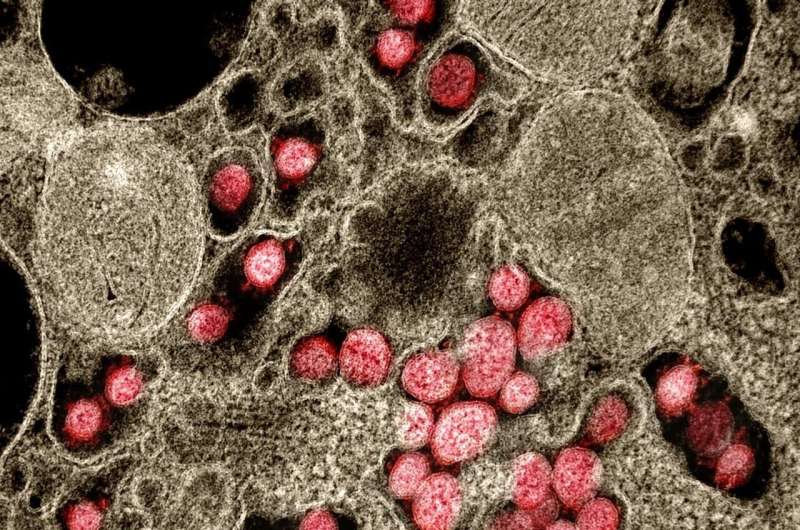More memory B cells exist in those fully vaccinated with previous SARS-CoV-2 infection, study says

A new study by University of Minnesota Medical School researchers is revealing that some people who received an mRNA vaccination for COVID-19 have greater immune responses compared to others. While the vaccine induces strong immune responses against the virus in almost everyone, data shows those who were previously infected with the virus have even greater immune responses after vaccination compared to fully vaccinated people who never had COVID-19.
Marc Jenkins, Ph.D., a professor and director of the Center for Immunology at the University of Minnesota Medical School, is the corresponding author, and Kathryn Pape, Ph.D., is the first author of a study published in Cell Reports. Jenkins and Pape are renowned experts on B cells, the immune cells in the body responsible for producing antibodies.
"Memory B cells are capable of rapid antibody production after re-infection, which is critical for immunity as antibody levels decline," Jenkins said. "Our research shows that fully vaccinated people who had a prior SARS-CoV-2 infection end up with an even larger number of memory B cells than fully vaccinated people who have not had an infection."
The study found that:
- People with a previous SARS-CoV-2 infection had a large number of spike-specific memory B cells before vaccination, and after the first dose of an mRNA vaccine, had a significant boost in spike-specific memory B cells—but not after the second dose;
- Despite the weaker response to the second mRNA dose, people with a previous SARS-CoV-2 infection still ended up with a larger number of spike-specific memory B cells than fully vaccinated people who never had the virus, and;
- The spike-specific memory B cells in people with a previous SARS-CoV-2 infection bound more tightly to the spike protein of the virus compared to the memory B cells induced in uninfected people after a single mRNA vaccination.
"Our results show the benefit that people who had a SARS-CoV-2 infection get from vaccination and predict that this group may have fewer breakthrough infections," Jenkins said. "While it's unclear how many memory B cells are needed for protection against infection, our data also indicates that people who had a previous infection and were then fully vaccinated are the least likely group to need a third—or booster—shot."
This team is now studying memory B cell formation in fully vaccinated people with immunosuppressed systems.
More information: Kathryn A. Pape et al, High affinity memory B cells induced by SARS-CoV-2 infection produce more plasmablasts and atypical memory B cells than those primed by mRNA vaccines, Cell Reports (2021). DOI: 10.1016/j.celrep.2021.109823





















